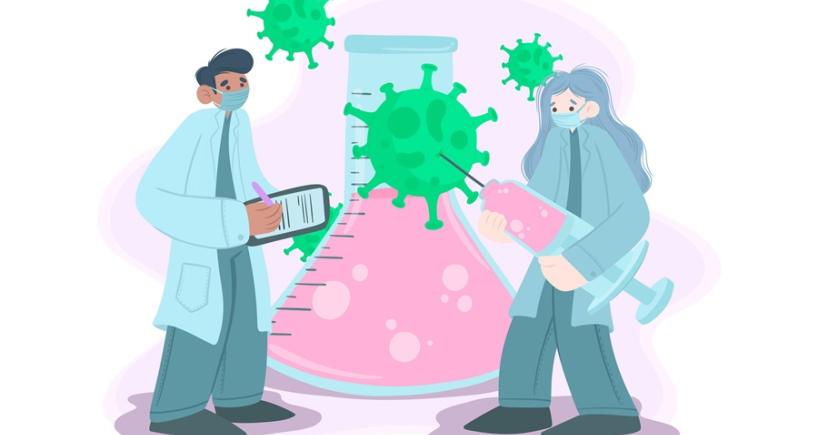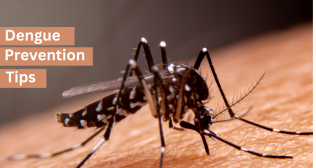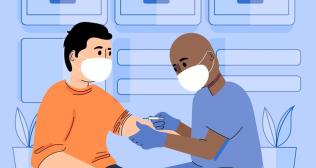
Preventing Infectious Diseases: Strategies for Health and Wellness
Introduction
In an ever-evolving world, infectious diseases persist as formidable adversaries, transcending time and borders. Despite remarkable advancements in science and technology, infectious diseases remain a critical challenge, affecting individuals across diverse social strata and geographical landscapes. This article discusses how to stay healthy by preventing diseases by looking at simple ways to protect ourselves and others so that we can live well in today’s world.
Types of Infectious Diseases
- Bacterial Infections: These infections are caused by bacteria such as Streptococcus, Escherichia coli, Vibrio cholera, and Mycobacterium leprae. Examples include tuberculosis, pneumonia, cholera, Hansen’s disease (leprosy), and urinary tract infections.
- Viral Infections: They are caused by viruses like influenza, HIV, and hepatitis. They often spread through respiratory droplets or bodily fluids. These infections can cause various illnesses ranging from common colds to severe diseases like AIDS.
- Fungal Infections: These are caused by fungi such as Candida and Aspergillus. Examples include ringworm, candidiasis (yeast infection), and athlete’s foot.
- Parasitic Infections: Organisms like Plasmodium (malaria), Giardia, and Trichomonas can transmit these infections through contaminated food or water, insect bites, or direct contact, impacting various organs and systems in the body and causing symptoms that can range from mild discomfort to a chronic illness.
Modes of Infection Transmission
Understanding how infections spread is crucial for safeguarding health. Let’s explore the various ways infections can be transmitted:
- Direct Human Transmission: Diseases can spread directly from person to person through touching, kissing, coughing, sneezing, or sexual contact. Examples include HIV, Chlamydia, and bacterial vaginosis.
- Transmission From Insects: Mosquitoes act as vectors for diseases like malaria. When they bite, they can introduce pathogens into the human body.
- Transmission From Animals: Diseases such as avian flu can pass from birds to humans. Contact with animals through bites, scratches, or handling waste can also spread infections.
- Mother to Unborn Child: Infections can cross from a pregnant mother to her fetus through the placenta. Examples include toxoplasmosis, rubella, cytomegalovirus, and herpes simplex.
- Indirect Contact: Insect bites from ticks can transmit diseases like Lyme disease and the West Nile virus. Contaminated water and food can also spread typhoid fever, cholera, and shigellosis.
Each of these modes of transmission presents unique challenges for disease prevention and control. Understanding how these transmission pathways operate is important for adapting effective strategies to combat infectious diseases and protect public health.
- Antimicrobial Resistance (AMR): Antimicrobial resistance (AMR) poses a critical challenge to infection control, affecting the efficacy of antibiotics, antivirals, antifungals, and antiparasitic drugs. Misuse, inadequate access, and poor infection control exacerbate its spread. Multidrug-resistant pathogens complicate treatment, leading to prolonged illness and higher mortality rates.
Infection Prevention and Control (IPC): A Global Imperative
Infection prevention and control (IPC) is a critical pillar of patient safety, rooted in evidence-based practices to avert avoidable infections. This vital discipline demands commitment across all healthcare levels, from policymakers and health professionals to patients. Here are the key aspects of IPC:
- Hand Hygiene: Consistently practicing thorough handwashing with soap or using alcohol-based hand sanitizers is important to minimize the risk of spreading infections.
- Injection Safety: Safe injection practices prevent the spread of bloodborne pathogens. Proper disposal of needles and syringes, single-use equipment, and adherence to infection control guidelines are crucial.
- Antimicrobial Resistance (AMR): The rise of AMR threatens effective treatment options. Rational use of antibiotics, infection surveillance, and stewardship programs are vital to combat this global challenge.
- Vaccination: Immunize against preventable diseases to minimize reliance on antibiotics and effectively control infections, especially considering emerging infectious disease variants.
- Exercise Caution: Utilize condoms for safe sex and refrain from sharing personal things, such as toothbrushes and razors, to minimize the risk of infection.
Infection control is everyone’s responsibility, transcending borders and backgrounds. By prioritizing IPC, we can safeguard patient well-being and contribute to a healthier world.
Popular Searches :
Hospitals: Cancer Hospital in Delhi | Best Heart Hospital in Delhi | Hospital in Amritsar | Hospital in Ludhiana | Hospitals in Mohali | Hospital in Faridabad | Hospitals in Gurgaon | Best Hospital in Jaipur | Hospitals in Greater Noida | Hospitals in Noida | Best Kidney Hospital in Kolkata | Best Hospital in Kolkata | Hospitals in Rajajinagar Bangalore | Hospitals in Richmond Road Bangalore | Hospitals in Nagarbhavi Bangalore | Hospital in Kalyan West | Hospitals in Mulund | Best Hospital in India | | Cardiology Hospital in India | Best Cancer Hospital in India | Best Cardiology Hospital in India | Best Oncology Hospital In India | Best Cancer Hospital in Delhi | Best Liver Transplant Hospital in India
Doctors: Dr. Rana Patir | Dr. Rajesh Benny | Dr. Rahul Bhargava | Dr. Jayant Arora | Dr. Anoop Misra | Dr. Manu Tiwari | Dr. Praveer Agarwal | Dr. Arup Ratan Dutta | Dr. Meenakshi Ahuja | Dr. Anoop Jhurani | Dr. Shivaji Basu | Dr. Subhash Jangid | Dr. Atul Mathur | Dr. Gurinder Bedi | Dr. Monika Wadhawan | Dr. Debasis Datta | Dr. Shrinivas Narayan | Dr. Praveen Gupta | Dr. Nitin Jha | Dr. Raghu Nagaraj | Dr. Ashok Seth | Dr. Sandeep Vaishya | Dr. Atul Mishra | Dr. Z S Meharwal | Dr. Ajay Bhalla | Dr. Atul Kumar Mittal | Dr. Arvind Kumar Khurana | Dr. Narayan Hulse | Dr. Samir Parikh | Dr. Amit Javed | Dr. Narayan Banerjee | Dr. Bimlesh Dhar Pandey | Dr. Arghya Chattopadhyay | Dr. G.R. Vijay Kumar | Dr Ashok Gupta | Dr. Gourdas Choudhuri | Dr. Sushrut Singh | Dr. N.C. Krishnamani | Dr. Atampreet Singh | Dr. Vivek Jawali | Dr. Sanjeev Gulati | Dr. Amite Pankaj Aggarwal | Dr. Ajay Kaul | Dr. Sunita Varma | Dr. Manoj Kumar Goel | Dr. R Muralidharan | Dr. Sushmita Roychowdhury | Dr. T.S. MAHANT | Dr. UDIPTA RAY | Dr. Aparna Jaswal | Dr. Ravul Jindal | Dr. Savyasachi Saxena | Dr. Ajay Kumar Kriplani | Dr. Nitesh Rohatgi | Dr. Anupam Jindal |
Specialities: Heart Lung Transplant | Orthopedic | Cardiology Interventional | Obstetrics & Gynaecology | Onco Radiation | Neurosurgery | Interventional Cardiology | Gastroenterologist in Jaipur | Neuro Physician | Gynecologist in Kolkata | Best Neurologist in India | Liver Transfer |



















